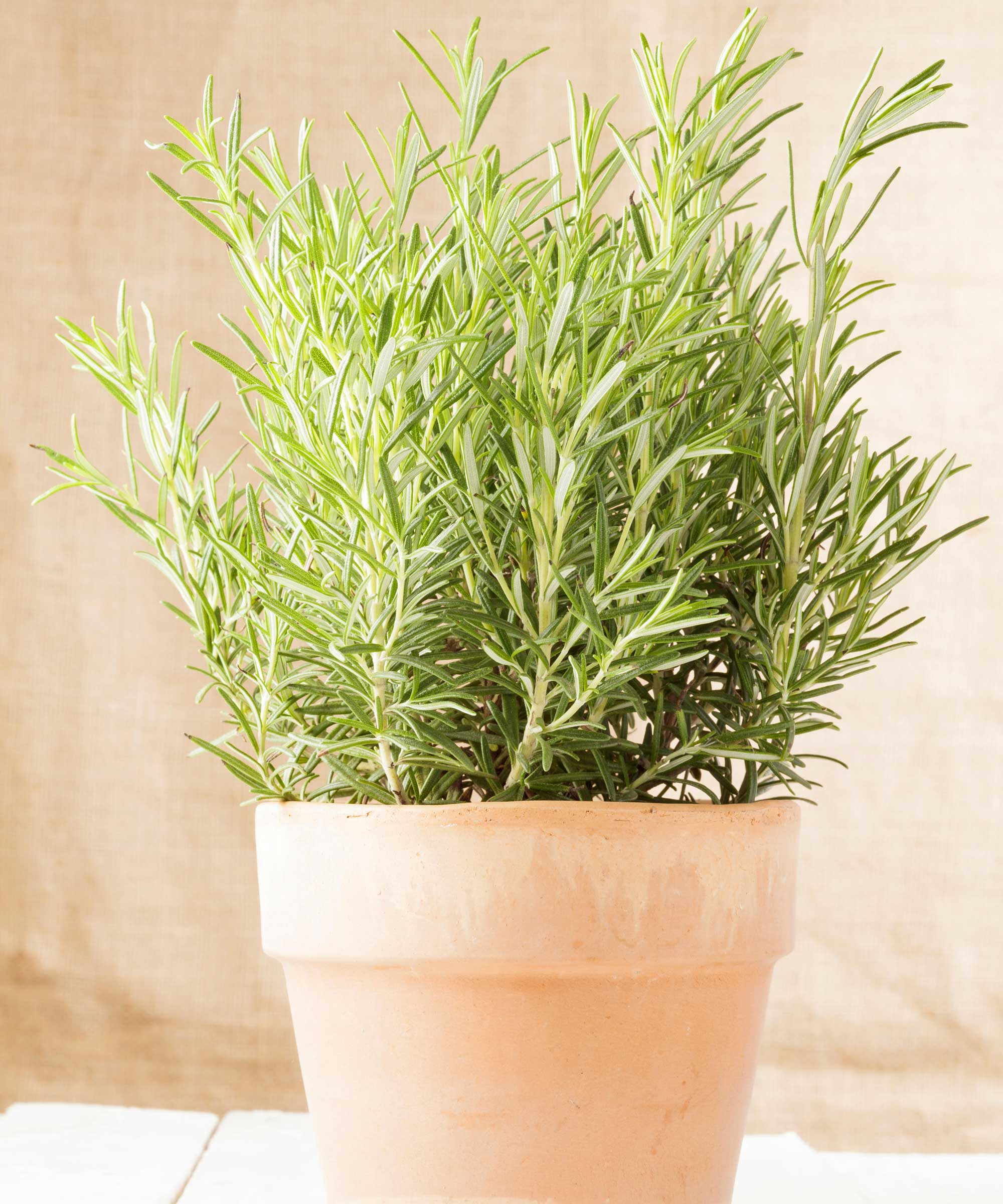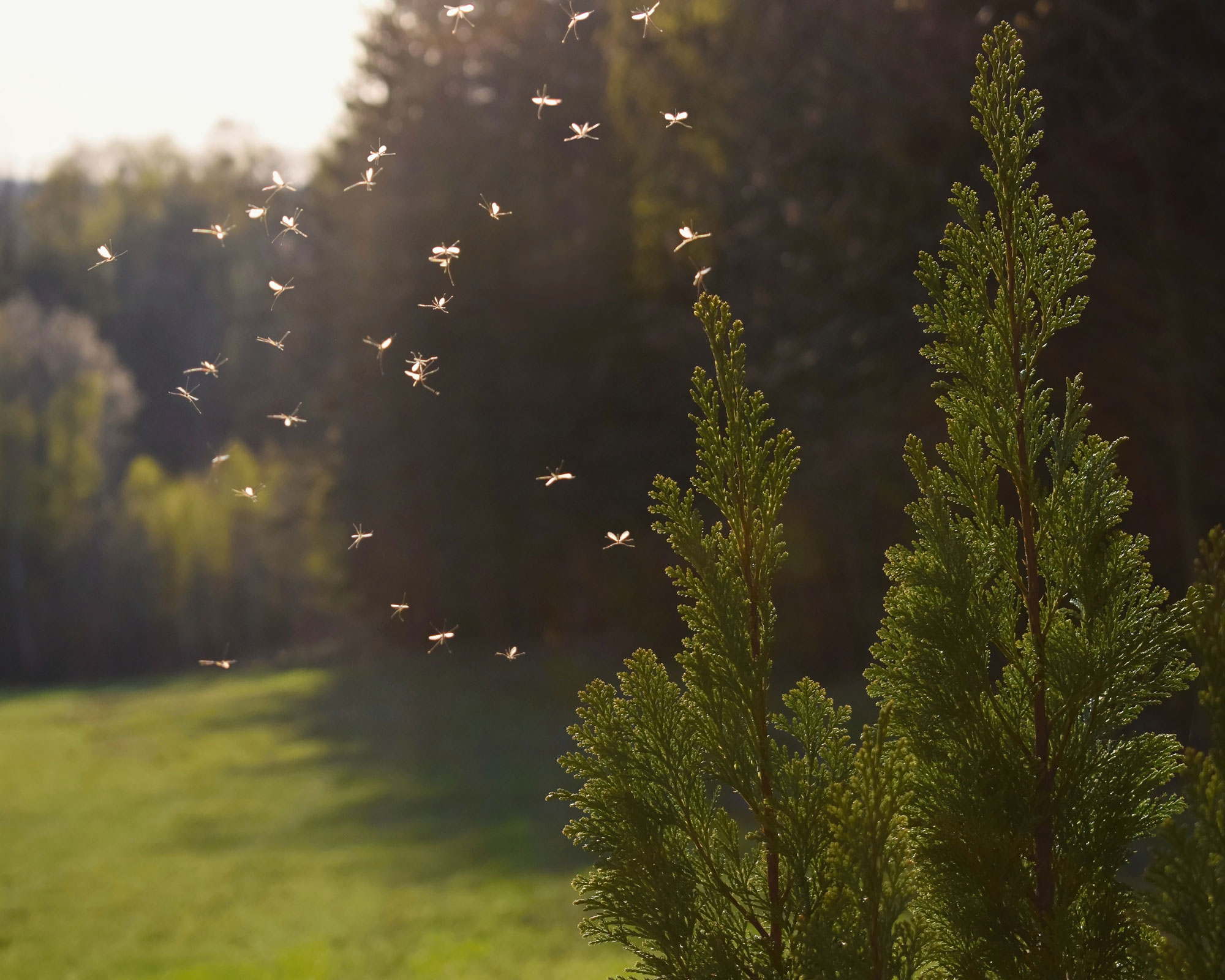Does rosemary repel mosquitoes? This culinary delight is full of surprises
Could this garden herb become your next go-to deterrent for these pests?


During summer, our desire to be outside in the warm weather grows, and we want to be able to enjoy it without worrying about mosquitos.
There are many products on the market available that will help get rid of mosquitos with man-made products like DEET or Picaridin.
With some natural repellents such as citronella and types of mosquito-repellent plants increasing in popularity, perhaps rosemary can be added to that list and allow you to enjoy your summer pest-free.
Can rosemary deter mosquitoes?
Experts say rosemary is, in fact, a natural mosquito repellent – below they share tips on how to use it.

Why does rosemary repel mosquitos?
Rosemary is a beloved herb renowned for its culinary uses, but its insect-repelling properties make it even more valuable. According to Diana Cox from The Gardening Talk, the essential oil extracted from rosemary contains potent compounds like cineole, camphor, and limonene, known for their mosquito-repelling effects.
When rosemary is burned to deter pests, or crushed, these compounds are released into the air, creating a barrier that deters mosquitoes. This has been backed up by two scientific studies which have reported the effectiveness of rosemary’s repellency. One study concluded that a 20% oil solution on rosemary provided 100% against mosquitoes for 8 hours, with another study stating rosemary completely repelled mosquitoes for 90 minutes.
With both of these studies cited in the Malaria Journal for BioMedCentral, you can feel assured that rosemary will help protect you from mosquitoes when used correctly.
Design expertise in your inbox – from inspiring decorating ideas and beautiful celebrity homes to practical gardening advice and shopping round-ups.
Diana Cox is the proud founder of The Gardening Talk and has over a decade of gardening experience. Through her blog, she aims to inspire and motivate fellow gardeners by sharing practical techniques that are grounded in both personal experience and thorough research.
How to use rosemary effectively

However, while rosemary can help repel mosquitoes, it's important to understand its limitations. Simply planting a rosemary bush in your yard, for example, won't create an impenetrable barrier against mosquitoes. ‘The scent of the plant is most effective when it's in close proximity,’ says A.H David, owner of Pest Control Weekly, ‘so it's better used as a localized repellent rather than a broad solution.’

A.H David is the co-founder and editor-in-chief of Pest Control Weekly. By hobby, he is a gardener and has experience dealing with all types of pests found in backyard gardens. His goal is to provide well-researched and authentic information about pests from his own experiences.
Several methods can be employed to use rosemary effectively as a mosquito repellent. One approach is to burn some rosemary essential oil, at Amazon, in a diffuser. This releases insect-repelling compounds into the air, thus creating a mosquito-free zone.
Incorporating rosemary essential oil into your mosquito repellent routine can be as simple as diluting a few drops in a carrier oil, such as jojoba or almond oil, and applying it to exposed areas of the skin. Another option, you may consider diffusing the oil indoors or incorporating it into homemade candles or natural insect sprays for outdoor use.
‘When using essential oils, it is crucial to follow proper dilution guidelines and perform a patch test to ensure no adverse reactions occur,’ says David Blue of Mozzie Dome Pest Control. ‘It's essential to consult with a qualified aromatherapist or healthcare professional, especially if you have any pre-existing health conditions or concerns.’

David Blue has a background in pest control, and studied Entomology at the University of Wisconsin. His organization, Mozzie Dome is a dedicated pest control company to find the best mosquito control for homes and businesses.
Alternatively, you can make a simple spray by adding a few drops of rosemary essential oil to a spray bottle filled with water. Shake well and then apply it to your skin or spray it around your home.
FAQs
Is rosemary safe for pets?
In general, dogs can consume small amounts of rosemary. Diced-up dried or fresh rosemary is safe to add to your dog's food or water and can help gastrointestinal or digestive tract issues. It is most certainly safe for your dog or pet to be around rosemary used in the house or yard as well.
Rosemary is not just a flavorful addition to your dishes; it's also a natural mosquito repellent that helps you enjoy the outdoors without those annoying bugs buzzing around.
Whether you keep potted rosemary on your patio, create DIY sprays, or use it as a companion plant, this herb has got your back in the fight against mosquitos.

Seraphina is a contributing editor at Homes & Gardens, writing Solved features on organizing and storage. She loves to decorate and also grow her own produce from her home in London. Her previous experience includes working at Women's Health and Fabulous Magazine.